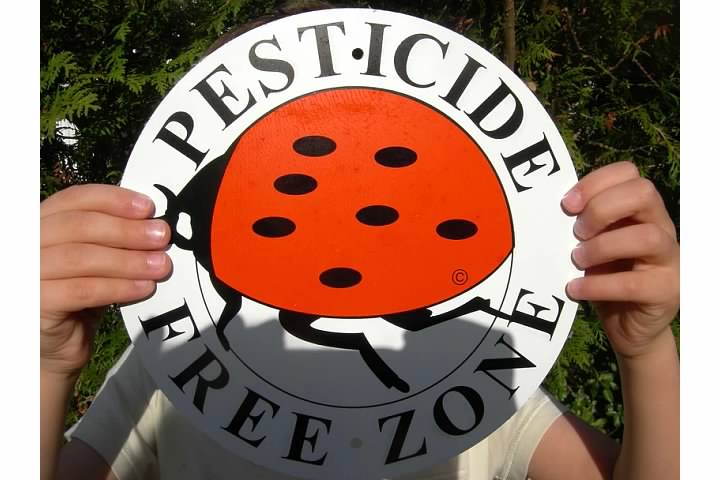PESTICIDE-FREE NEW CANAAN
|
Home Are Pesticides Safe? Why Go Pesticide-Free? How to Maintain Pesticide-Free Lawns and Gardens Resources: Articles, Land Care Professionals, Links Hall of Fame Pesticide Notification Registry The New Toxic Pesticide Threat - Health Hazards of Pesticides From: www.Rodale.com Scientists add another problem to the knowledge base containing the hazards of pesticides. |
 |
A chemical fungicide commonly sprayed on nonorganic strawberries, kale, sugar beets, blueberries, and other greens has been shown to kill frogs within an hour of exposure, according to new research from British scientists.
The study, published in the journal Scientific Reports, found pyraclostrobin, a chemical used in Insignia, Headline, Pristine, and Pillar products, proved fatal to amphibians with astonishing speed—sometimes within minutes.
Residues of this chemical are routinely found on nonorganic supermarket greens and berries, although it's not clear what long-term human health effects this might cause. In America, chemicals are often approved for farming or industrial use without adequate research to make clear what their health impacts might be. Emerging science suggests even miniscule exposures to certain chemicals at key times—in utero and in early childhood, in particular—could affect a person's life and health decades down the line, or even that of possible future generations.
According to the Minnesota Department of Health, in addition to its use as a fungicide, pyraclostrobin is used for its ability to speed the growth of plants. It's also a go-to fungus killer for lawns and golf courses, a potential problem because rainstorms create runoff from the grass that can carry the amphibian-killing chemical into surface waters.
Frogs around the globe are facing extreme extinction pressure, and this new study provides insight into one of the possible major contributors to these amphibians' decline. Aside from pyraclostrobin, British researchers also looked at other common fungicides, herbicides, and insecticides. Another startling finding? The insect-killing chemical dimethoate, an insecticide sometimes found on spinach, killed about 40 percent of exposed frogs within a seven-day period.
Previous research from biologists at the University of California–Berkeley found a leading weedkiller, atrazine, turns male frogs into females. In humans, the hormone-disrupting chemical has been linked to infertility and smaller-than-normal babies.
To help keep toxic pesticides out of the environment and your family's bodies, use these easy tips:
Choose organic as often as possible. To save money on organic food, eat seasonal foods. One fun way to do this is to join a community supported agriculture, or CSA, program. You can also try planting easy-to-grow greens like cut-and-come again lettuce for an endless supply of greens. Be sure to choose organic seeds to start veggies you grow.
Create an organic lawn. Healthy, organic soil stores water and reduces runoff, and it also keeps toxic lawn chemicals out of your home, protecting your family and pets in the process.
Go native! Instead of a turf lawn that creates lots of stormwater runoff that may harm amphibians and other critters, plant trees, shrubs, and flowers native to your area. They'll act like a sponge when it rains and will reduce lawn work, since most native species are pretty low maintenance. A nice side effect of filling your lawn with native plants? It becomes a biodiverse oasis that draws birds and butterflies. To find native plants suitable for your area, visit Lady Bird Johnson Wildflower Center Database from University of Texas at Austin.